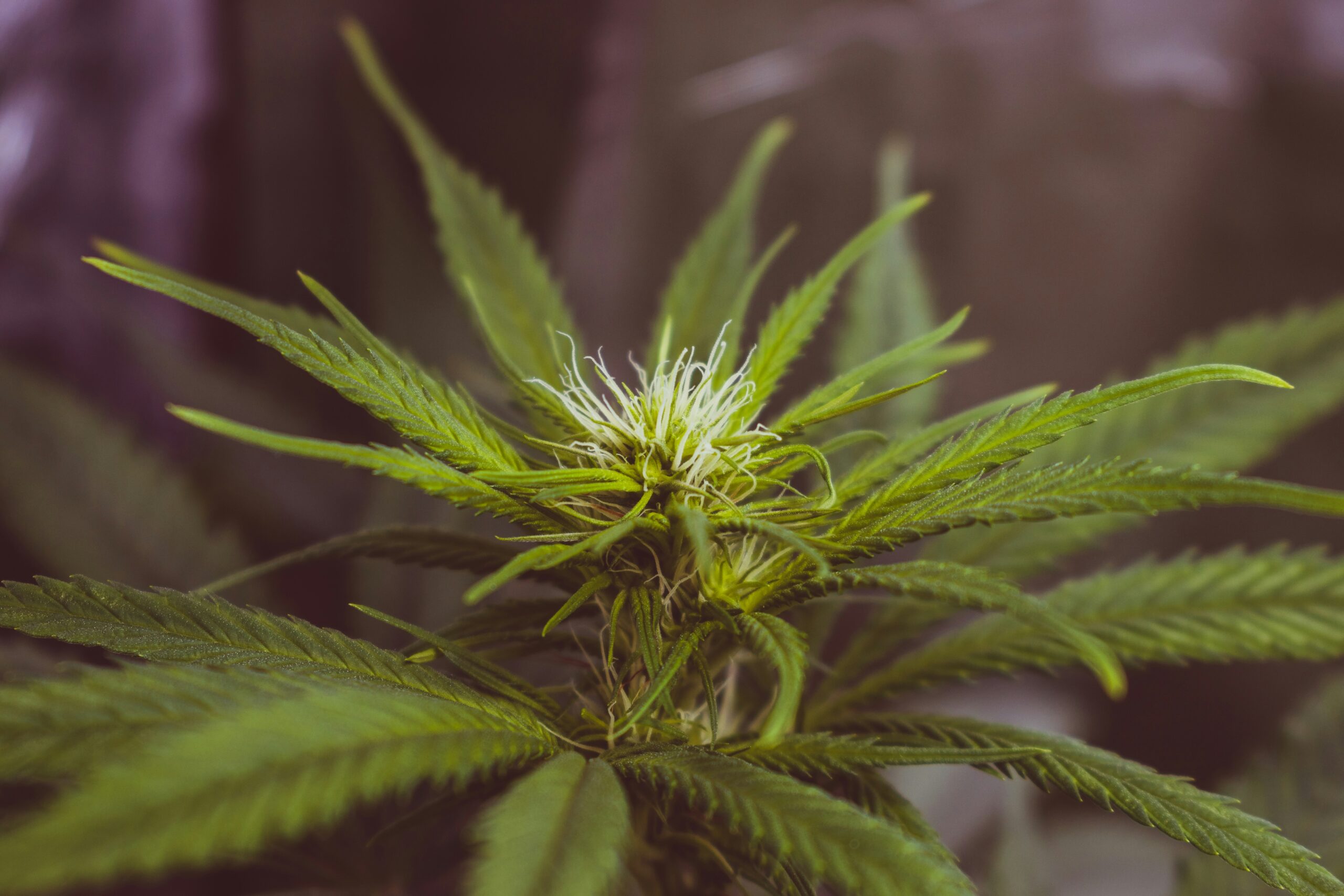German culture is rich in historical traditions and is renowned for its long history of medical excellence. As a result, breakthroughs like cannabinoids are well-suited for German culture, but nonetheless, certain barriers remain in the way of a flourishing German cannabinoid economy.
As has always been the case in history, these barriers will be erased by the nuanced-yet-intrepid actions of individual companies as they expand the German cannabinoid economy. Along the way, specified knowledge will be required to avoid pitfalls and maximize successes. What is the current status of the cannabinoid market in Germany, and — specifically — how is German law shaping the evolution of the industry?
Are cannabinoids legal in Germany?
Yes, some cannabinoids are legal in Germany in certain contexts. For instance, Germany has adopted the general European Union (EU) position that non-food CBD products are usually acceptable for some form of reasonably unrestricted sale as long as they contain less than 0.2% delta-9 tetrahydrocannabinol (THC).
The German Bundestag is also hard at work on a major revision to the nation’s adult-use and medical cannabis laws. A series of two draft bills¹ are in the works that would, first, allow the reasonable possession of cannabis by German adults, and second, remove cannabis from the German Betäubungsmittelgesetz (BtMG) or narcotics code.
Germany remains restricted in its ability to legalize cannabis by overall EU legislation, which has a significant impact on economic relations between member countries. The first draft bill was revised to allow possession and the establishment of “grower clubs” with up to 500 members, instead of permitting commercial cannabis sales.
Among European nations, Germany is taking some of the greatest strides to accept cannabinoids. In the process, the prominent EU state illustrates the significant challenges still present in the European market — challenges that continued investment in German cannabinoids is expected to gradually relieve.
History of German Cannabis
In “Marijuana Medicine: A World Tour of the Healing and Visionary Powers of Cannabis,” author Christian Rätsch relates how² people living in Thuringia, Central Germany, must have discovered cannabis as far back as 7,500 years ago. Also, cannabis seeds were found in the ashes of a funerary urn discovered in Wilmersdorf dating back to 500 BC. Clearly, cannabis has played a major role in German culture since before recorded history.
It’s only recently, in fact, that cannabis use in Germany received any stigma whatsoever. From the days of the ancient alchemists to the more-recent physicians of the Enlightenment age, Germans did more to promote the ancestral understanding of cannabis³ and its medical uses than, arguably, any other historical people.
German physicians were just as well-versed on the physical healing powers of cannabis as they were aware of its spiritual or psychological capacities. Although cannabis is largely prohibited worldwide, Germany can rely on its ancestral reverence for the cannabis plant, making it unique among European nations.
History of cannabis laws in Germany
Cannabis first entered the lexicon of German law in 1981 with the introduction of the BtMG⁴, Germany’s overall narcotics law. Germany had a law against opium in place in 1929, but the BtMG marked the country’s first move to restrict the production, possession, and use of cannabis and derivative products.
Despite the BtMG, Germany has long been known for having some of the most lax laws on drug possession and use. To be clear, possessing most narcotics is just as illegal in Germany as it is in the United States, but laws are somewhat looser in the realm of enforcement and prosecution.
Germany displayed its overall laissez-faire toward cannabis (and perhaps revealed its ancestral history with the plant) in 2007 when it became one of the first nations in the world to legalize medical cannabis⁵. This legislation remained so limited in scope, however, that by 2015⁶, it was estimated that only 300 Germans had access to medical cannabis products.
That all changed when Germany “renewed” its medical cannabis legislation in 2017, massively expanding the program⁷. At this point, it essentially became legal for all Germans to buy and possess cannabis through the state medical system. Restrictions on applications became considerably looser, resulting in a massive expansion of the German cannabinoid industry at large.
Just how large was this expansion? In 2022, Statista⁸ estimated that more than 6.7 million Germans now use cannabis, an increase from just 600,000 patients right after the expansion of the nation’s medical-use program in 2017.
This makes Germany one of the largest global cannabinoid economies, trailing just behind Canada (~7.5 million users⁹). One day, it’s even possible Germany will rival America’s cannabinoid economy (~48 million users¹⁰), given the nation’s considerable population size over that of Canada’s (83 million vs. 38 million).
Now, as mentioned at the beginning of this guide, German legislators are preparing to open the country’s cannabis economy even further. This is certainly an excellent time to be learning more about Germany and the nation’s perspective on cannabinoids.
Which cannabinoids are legal in Germany?
The country’s perspective on THC products may be unique, but German views on CBD, CBG, and other non-intoxicating cannabinoids are relatively generic and unlikely to pose significant challenges. However, understanding German views on CBD and similar compounds requires considering the nation’s overall cannabis history. Below, we’ll take a look at the top three cannabinoids currently leading the international cannabinoid economy, diving deeper into the ways ancient German cannabis wisdom may be informing contemporary positions:
Is CBD legal in Germany?
Yes, CBD is legal in Germany both due to German law and the nation’s participation in the EU. CBD is not specified under the BtMG, so this German narcotics law has no bearing on the compound itself. Furthermore, EU regulations have long held that, under most circumstances, cannabis containing less than 0.2% THC (increased to 0.3% in 2021¹¹) is useable for industrial or scientific purposes, not for the purpose of intoxication.
German courts have a considerable history with CBD. In some cases, even CBD products containing less than 0.2% have been wrongly designated as having intoxicating value¹². Given the overall progression of EU cannabinoid law combined with Germany’s increased acceptance of Cannabis sativa in general, misunderstandings like these are certain to become increasingly uncommon.
Due to EU regulations, Germany views various categories of CBD products quite differently. Many orally ingested CBD products are considered for “industrial or commercial use,” but food-related products are ineligible for sale in Germany.
CBD gummies, for instance, are illegal in Germany since they violate EU code regarding CBD in food products. Cosmetics containing CBD are viewed differently from other CBD products, which is an important factor when entering the German CBD market.
Is CBD legal in Germany?
The CBD-adjacent cannabinoid cannabigerol (CBG) remains something of an unknown in Germany despite making considerable gains in American markets. Similar to CBD in being non-intoxicating but fully distinct in its effect and benefit profiles, CBG is certainly something Germans would be interested in under normal circumstances.
With CBD still on its way toward full acceptance in the country, however, attention for new cannabinoids remains divided. The challenge is to present CBG as something new and interesting for Germans to try without raising alarm among authorities that the cannabinoid is somehow more adjacent to THC than it is to CBD.
Is THC legal in Germany?
THC is not legal in Germany as an overall compound. The European country has massively expanded its medical cannabis industry in recent years with plans to expand it even more. THC-rich cannabis use in Germany remains restricted behind a strictly non-commercial wall, though — due to EU law, it is illegal to outright sell cannabis for general adult use within member states, a point it appears the Bundestag has currently chosen to accept rather than contest.
In summation, THC is only legal in Germany in the context of medical cannabis acquired via a state-run pharmacy. As this implies, a doctor’s prescription is also required to legally purchase THC-rich cannabis in Germany. While mainly a formality, this extra step creates extra legwork for consumers, a main driver behind recent legislation designed to revise the nation’s stance on cannabis.
Does Germany have adult-use cannabis?
No, adult-use or recreational cannabis is not legal in Germany. As a result, proper medical authorization is required to possess cannabis products, or the products must contain less than 0.2% THC in pursuance with EU code.
Lack of adult-use cannabis in Germany contributes to a persistence of access challenges for average Germans. Given the fact that the German government has moved so greatly in recent years to embrace cannabis, the proper stance is to simply empower Germans as allies in making their interest in cannabinoids heard.
Can you import cannabinoids into Germany?
According to cannabinoid laws in Germany, imports of cannabinoid products containing less than 0.3% THC generally follow EU code. The German government heavily regulates THC-rich cannabis imports but imposes no such rules on EU-approved industrial hemp products.
Are there cannabinoid manufacturers in Germany?
Cannabinoid manufacturers in Germany are generally restricted to medical or research purposes. Major cannabinoid manufacturers in neighboring European countries ensure steady access for German clients without relying on intercontinental trade.
Summary: Future prospects of German cannabinoid culture
Germany is a nation with a proud and complex history. Reluctant to appear too headstrong, German lawmakers tend to defer to EU positions.
This approach supports European unity but sometimes overlooks German distinctness in its unique relationship with cannabis. Germany’s distinct relationship with cannabis makes it an ideal candidate for the lifting of prohibition.
In approaching the German public or lawmakers regarding the issue of cannabis, this cultural distinctness may resonate strongly. Respect Germany’s diplomatic skill and support its people’s efforts to restore cannabis to their ancestral pharmacopeia.
In time, this disciplined and nuanced approach can’t help but develop Germany into the epicenter of the European cannabis industry that it was always fated to become. In the wider view, the complexities the German cannabinoid market currently faces are nothing compared to the future that is being sculpted by the industry’s visionaries.
Sources
1. Sabaghi, D. (2023, July 10). Germany Unveils Draft Bill To Legalize Cannabis. Forbes. https://www.forbes.com/sites/dariosabaghi/2023/07/10/germany-unveils-draft-bill-to-legalize-cannabis/?sh=1fc6fd0d2272#:~:text=Under%20the%20draft%20bill%2C%20adults,a%20maximum%20of%20three%20plants
2. Google Books. (n.d.). https://www.google.com/books/edition/Marijuana_Medicine/o_dKbMFRSzUC?hl=en&gbpv=1&dq=the+Healing+and+Visionary+Powers+of+Cannabis&printsec=frontcover
3. Grotenhermen, F. (2002). The Medical use of Cannabis in Germany. Journal of Drug Issues, 32(2), 607–634. https://doi.org/10.1177/002204260203200218
4. Details. (n.d.). https://www.unodc.org/LSS/Country/DetailsLegalSystem?code=DLIL&country=DE
5. Welle, D. (2007, August 21). Landmark drug ruling. dw.com. https://www.dw.com/en/germany-allows-patient-legal-use-of-cannabis/a-2746463
6. Welle, D. (2015, February 3). Cannabis in Germany. dw.com. https://www.dw.com/en/high-time-for-medical-marijuana-in-germany/a-18231922
7. Germany: Medical Marijuana Act Enters into Force. (2017, March 13). The Library of Congress. https://www.loc.gov/item/global-legal-monitor/2017-03-13/germany-medical-marijuana-act-enters-into-force/
8. Topic: Cannabis in Germany. (2023, June 13). Statista. https://www.statista.com/topics/11023/cannabis-in-germany/#topicOverview
9. Canadian Cannabis Survey 2022: Summary. (2022, December 16). Canada.ca. https://www.canada.ca/en/health-canada/services/drugs-medication/cannabis/research-data/canadian-cannabis-survey-2022-summary.html#:~:text=Significant%20difference%20between%20males%20and%20females.&text=Overall%2C%2019%25%20of%20Canadians%20age,from%2017%25%20in%202021).
10. Data and statistics. (n.d.). https://www.cdc.gov/marijuana/data-statistics.htm#:~:text=Marijuana%20is%20the%20most%20commonly,at%20least%20once%20in%202019.&text=Recent%20research%20estimated%20that%20approximately,marijuana%20have%20marijuana%20use%20disorder.
11. Sabaghi, D. (2021, December 14). European Union Increases THC Level For Industrial Hemp. Why Does It Matter? Forbes. https://www.forbes.com/sites/dariosabaghi/2021/12/14/european-union-increases-thc-level-for-industrial-hemp-why-does-it-matter/?sh=4721a5e8128b#:~:text=The%20European%20Parliament%20approved%20on,enter%20into%20force%20in%202023.
12. Cannabis law and legislation in Germany | CMS Expert Guides. (n.d.). CMS Law.Tax. https://cms.law/en/int/expert-guides/cms-expert-guide-to-a-legal-roadmap-to-cannabis/germany






